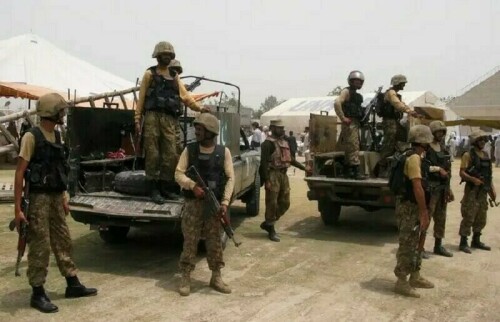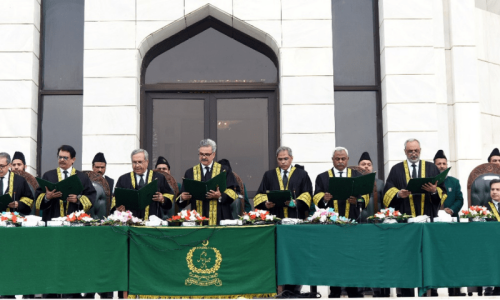
PARIS: The willingness of Western powers to work with Egypt's president-elect Mohamed Morsi recognises the growth of the Muslim Brotherhood and shows a concern for regional stability, analysts say.
The United States, the European Union, France and Britain, all hailed the vote as a historic moment for Egypt with its first democratically elected civilian president.
Morsi, the Muslim Brotherhood's candidate who defeated his rival, Ahmed Shafiq, a former premier under ousted strongman Hosni Mubarak, in Sunday's run-off, had quickly moved to allay fears over the Muslim Brotherhood’s victory in the Arab world's most populous country.
“This election was both democratic and legitimate despite some problems...” said Denis Bauchard of the French Institute of International Relations (IFRI).
And following recent Muslim party victories in Tunisia and Morocco, “it shows that the Muslim Brotherhood has become an undeniable player in the region, at least for now. The Western powers have to recognise them as negotiating partners,” said Bauchard.
Jane Kinninmont, senior research fellow on the Middle East and North Africa at British think tank Chatham House, echoed that view saying “there's been a big change in Western attitudes towards the Muslim Brotherhood. Over the past 18 months it's become increasingly clear that there are strong, vocal demands for representative government in the Arab world, and it's increasingly difficult for them to not accept those results,” she said.
A freely elected head of state cannot be ignored, and that leaves the West only to urge Morsi to continue Eygpt's transition towards democracy which began with the February 2011 uprising and as US President Barack Obama put it to work together “on the basis of mutual respect.”
French leader Francois Hollande hoped Morsi would establish in Egypt “a democratic and pluralist political system” which “guarantees the civil and political liberties of all citizens and minorities.”
An official with the Egyptian military, which took charge after Mubarak's overthrow, told AFP the transfer of power to civilian rule is still scheduled for June 30.
For the West “achieving a proper balance” between pressuring the Egyptian military rulers “without triggering widespread hostility will not be easy, especially at a time of heightened xenophobia and mistrust of anything coming from the outside,” the International Crisis Group said in a statement.
The West's main concern now is that Egypt maintains its international accords, especially the peace treaty with Israel and free access to the Suez Canal, said Karim Emile Bitar of the Institute for International and Strategic Relations (IRIS) in Paris.
“That is essential for the United States, even before democracy,” he said.
Bauchard added that “the concern is palpable in Israel” and all the Western powers “can do is wait.”
On Sunday Morsi promised to respect Egypt's international treaties without being specific, and he has said he would like to reconsider the peace treaty with the Jewish state, but made no suggestion that it would be cancelled altogether.
Kinninmont noted that though the Muslim Brotherhood is much more anti-Israel than the Mubarak regime was, “the Brotherhood have said that they'll respect the peace treaty with Israel.
“I think it's overwhelmingly likely that no party that comes into power in Egypt is going to want to go back to a state of war,” she said.
“Israel's main worry is likely to be security in the Sinai area,” she said, explaining that since the uprising it has become “a haven for militants, and not just anti-Israel militants, but militants who are against the Egyptian state.”













































